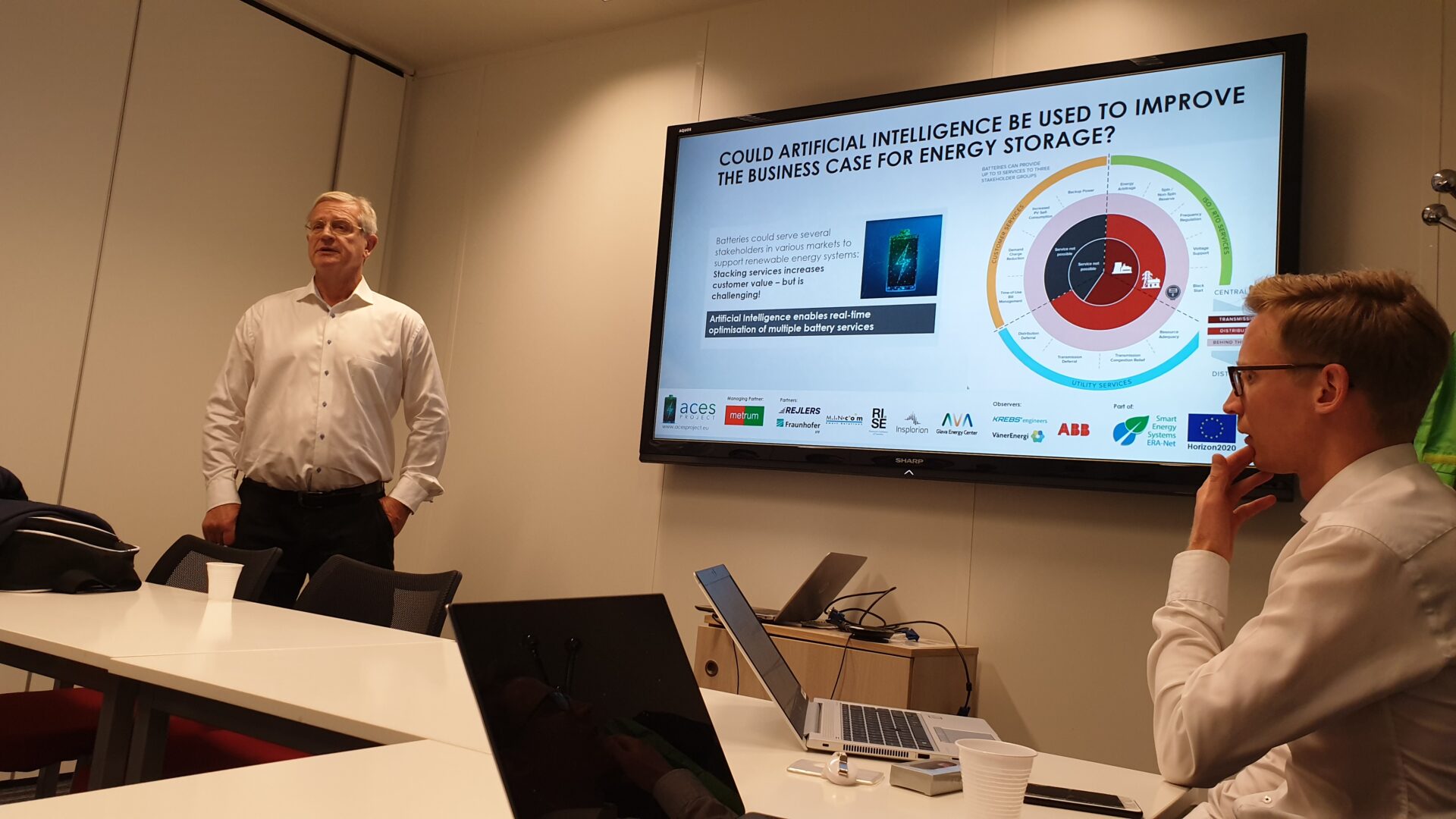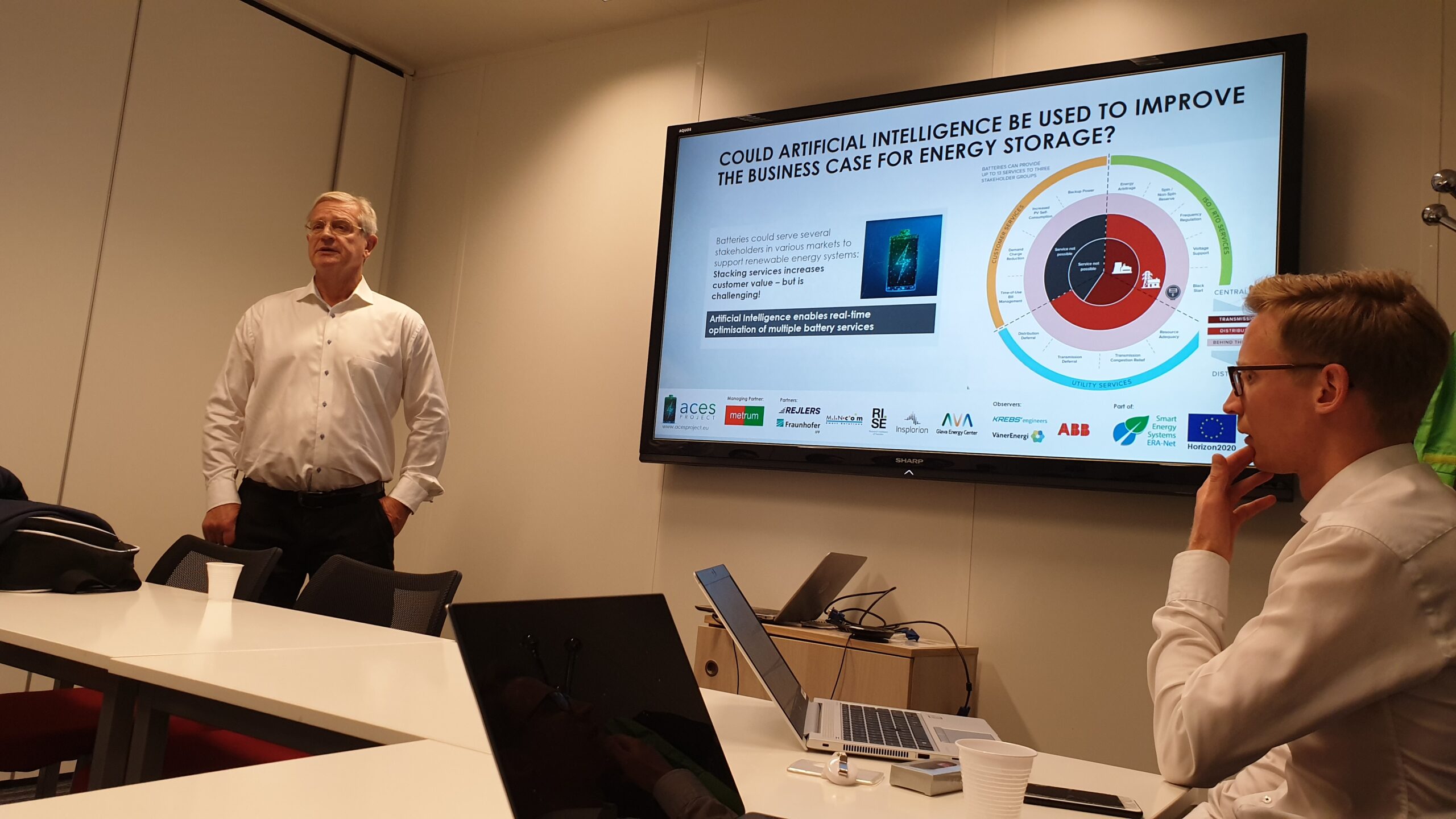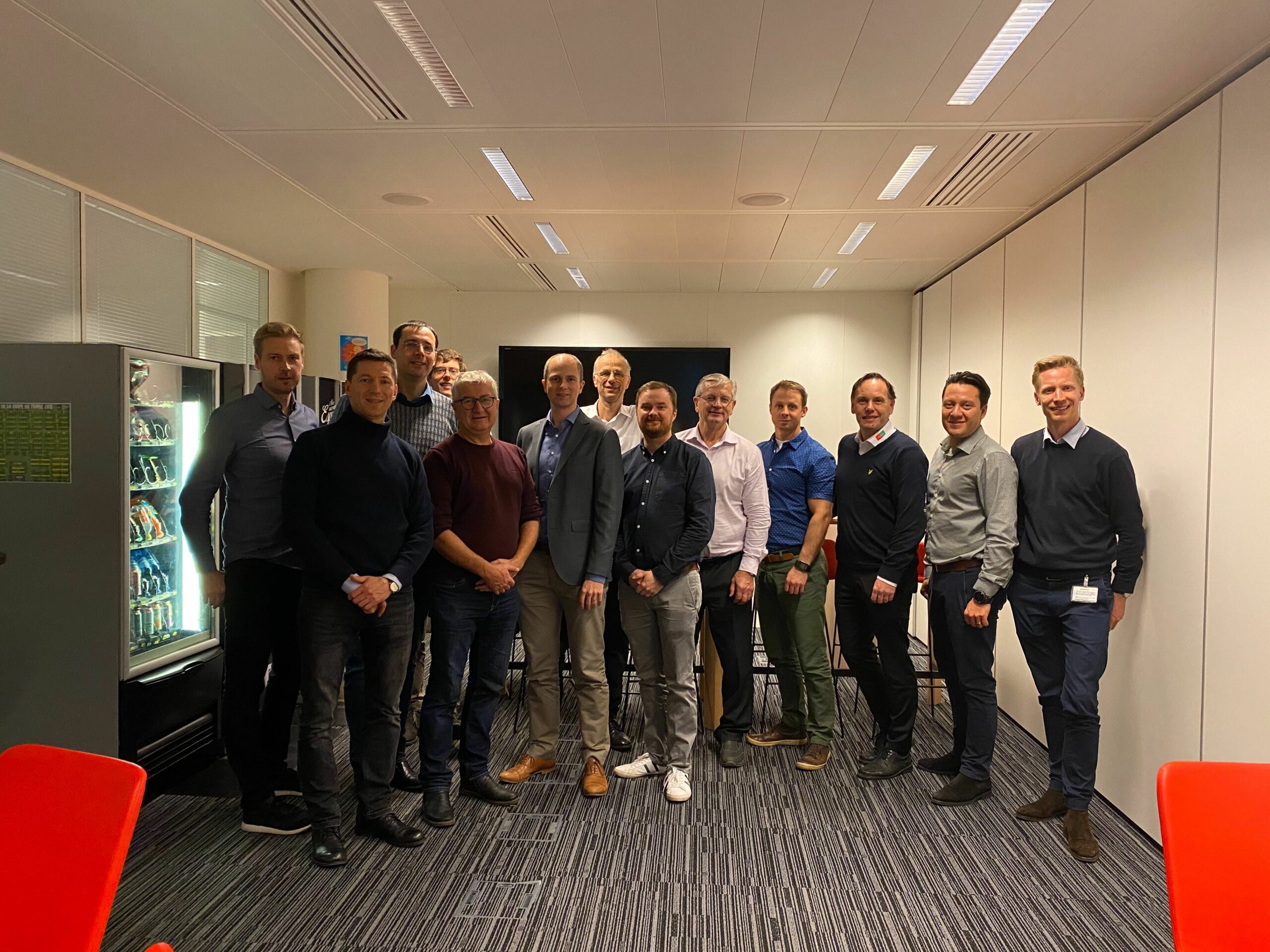ACES Meeting in Paris
November 20, 2019

One answer might spell BESS, that’s Battery Energy Storage Systems. Principally, a party, be it private owner, distribution system operator (DSO), or transmission system operator (TSO), invests in a BESS with which they hope to sell services to the grid, such as peak shaving or frequency control. Unfortunately, owning such a system today might not be a profitable enterprise due to regulations, taxes, and uncertainties. This is what Insplorion and project partners hope to fix through the Adaptive Control of Energy Storage, or ACES project. By implementing machine learning and AI the project aims at making it easier and more profitable to invest in and own energy storage units. Finally, integrating Insplorion’s InBAT battery sensor into the cells in the energy storage unit allows for operation optimization through better tracking of State of Charge, State of Function, and State of Health of the batteries.
Last week, the ACES project partners and observers came together in Paris during European Utility Week. The agenda: project steering and planning but also to meet and hold workshops with the Project Reference Group. The Reference Group, consisting of e.g. ABB, Vattenfall, AGM Batteries, VänerEnergi, and RISE, represents potential customers or entities with an interest in the project and its outputs. Overall, productive and important discussions were had, great feedback was obtained from the reference group, and the project partners are now more aligned and focused on the work at hand during this second half of the project.
To learn more about the ACES project, visit https://www.acesproject.eu/
Cheers,
Christian
 Lars Olsson, key founder of the ACES project, introducing how the core concept of adaptive control can be used in various energy storage applications.
Lars Olsson, key founder of the ACES project, introducing how the core concept of adaptive control can be used in various energy storage applications.
 Metrum CEO, Robert Olofsson, updating ACES consortium partners of Metrum’s role in the project.
Metrum CEO, Robert Olofsson, updating ACES consortium partners of Metrum’s role in the project.
 ACES project partners: Rejlers, Fraunhofer IFF, MINcom, RISE, Metrum, Insplorion (Christian), and WSP.
ACES project partners: Rejlers, Fraunhofer IFF, MINcom, RISE, Metrum, Insplorion (Christian), and WSP.
Send us an enquiry.
We’ll get back to you as soon as we can.